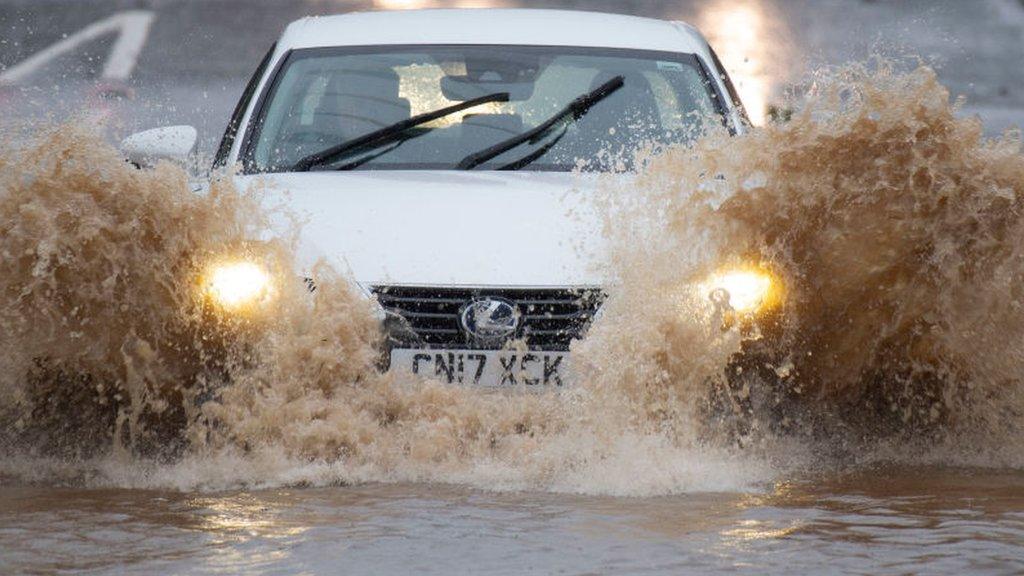Climate change: Tough choices over flood-risk towns in Wales, says minister
- Published
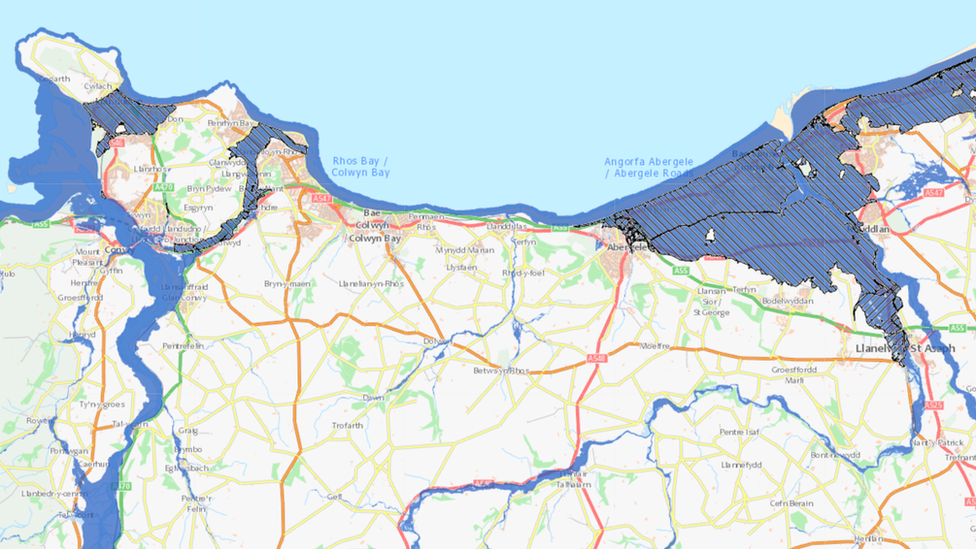
Large stretches of the north Wales coast have been identified as at risk
Difficult decisions will need to made over how to regenerate coastal towns at risk of flooding, a Welsh government minister has said.
Flood maps forecast population centres along the north and south Wales coast underwater within decades, Deputy Climate Minister Lee Waters said.
Mr Waters told Radio Wales's Sunday Supplement that policy makers face tough decisions.
He was speaking on the first day of the COP26 climate summit in Glasgow.
"We want to regenerate town centres. Quite a lot of our town centres are on floodplains," he said.
"Now do we allow development on there - on the one hand dealing with the 'crying issue' in front of us of declining town centres, but then think, well, that's the wrong thing to do."
"These are really tough choices," he added.
He pointed to forecasts by National Resources Wales flood maps that population centres along the north and south Wales coast would be underwater in 30 or 40 years.
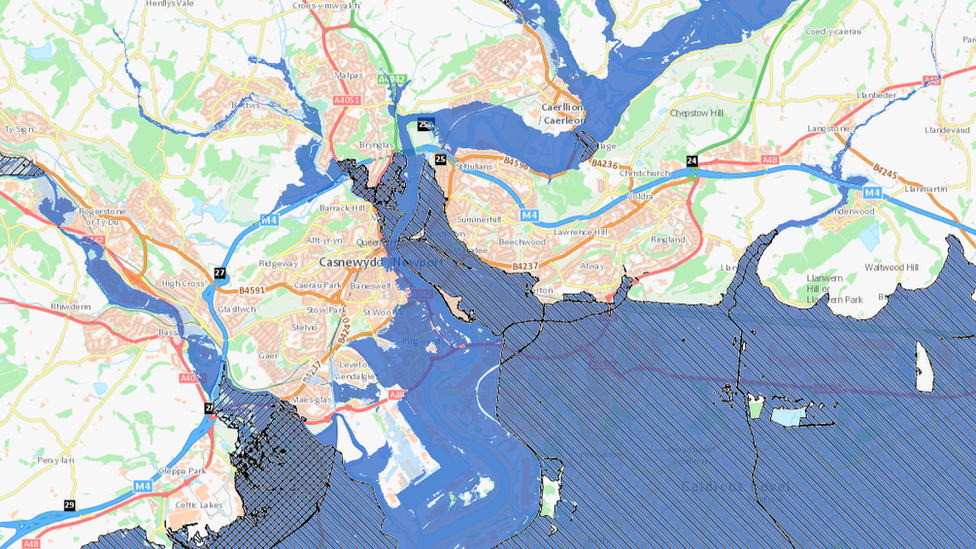
Tidal locations around Newport have also been pinpointed
But he said that it was possible to respond to the changing climate and develop projects that would be of immediate value such as localising jobs.
"We have to decarbonise the bus fleet. So we've got a commitment to get rid of the dirtiest 50% by the end of the decade and then move beyond that.
'We all have a responsibility'
"If we pool all our orders in Wales and say we're going to be building x hundred buses, and instead of buying these from China or India, let's make those in Wales.
"Now that's responding to climate, but it's also bringing a here and now benefit that people can relate to, respond to, and feel a benefit from."
Mr Waters said said there was a temptation to say 'Well, that's the government's problem. What's the government's going to do about that?'
"I don't think that quite works for climate change. We all have a responsibility. These are collective decisions we all make - from builders and planners and managers, to decision makers in public authority."
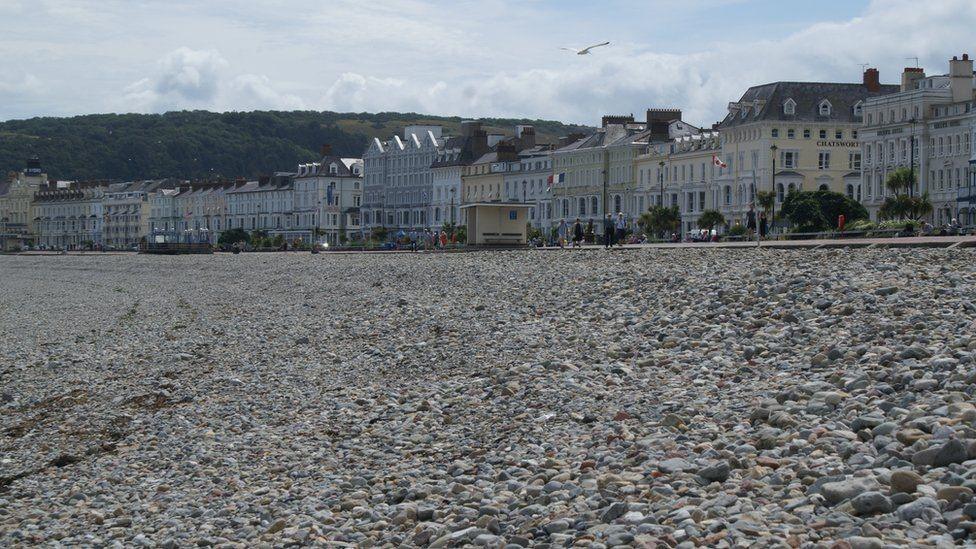
Llandudno is also included as being at risk of flooding in the forecast maps
He said the Welsh government had made difficult decisions about agricultural pollution and freezing road spending.
"There's constant opposition to that," he said. "So it's all very well in the abstract signing up saying we want to do things differently, but then it comes to the consequences of that and people aren't prepared to follow through."
Related topics
- Published5 October 2021
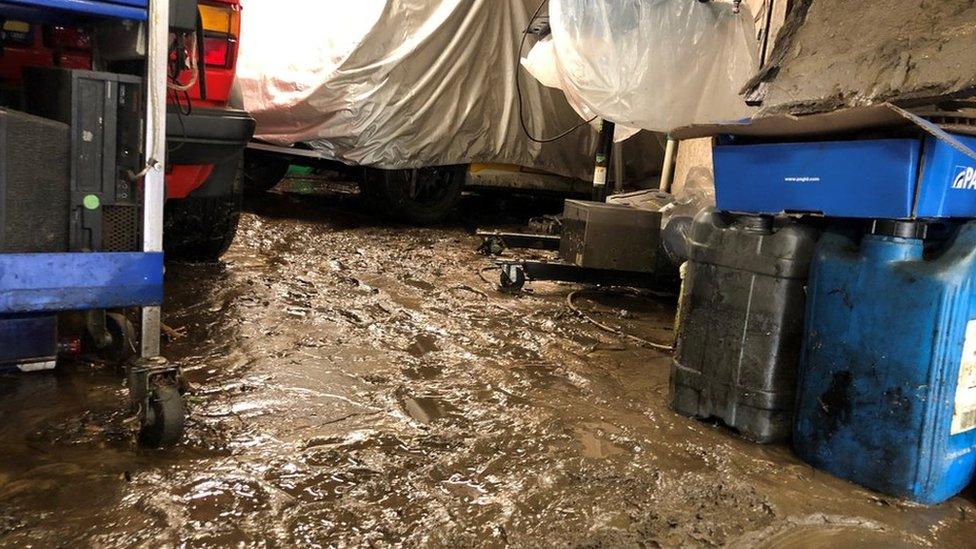
- Published28 September 2021
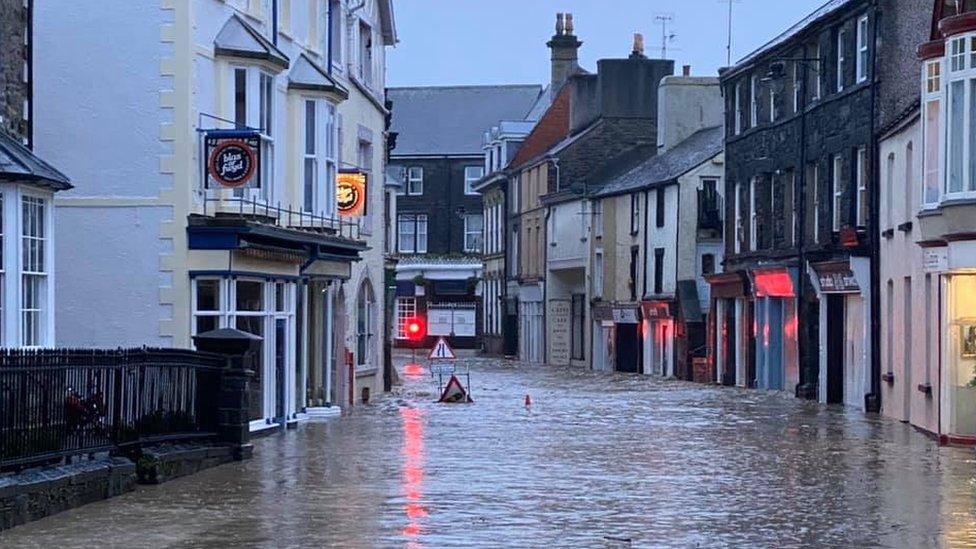
- Published31 October 2021
